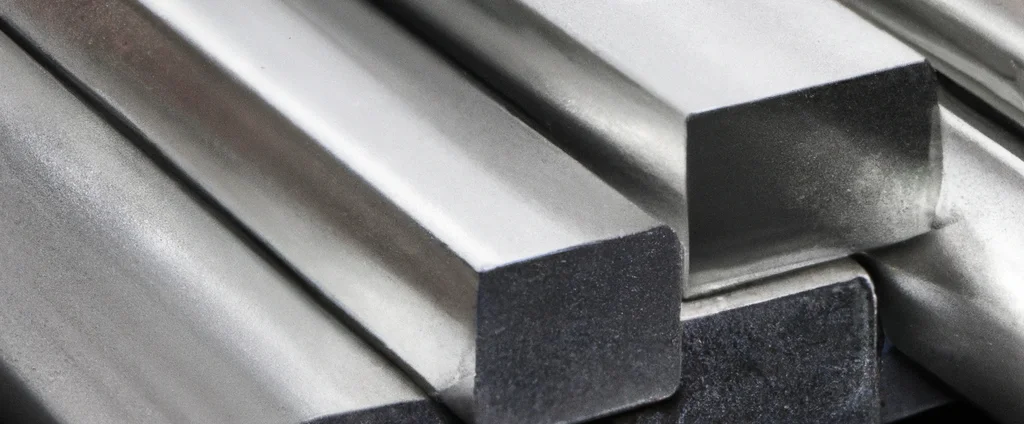Aluminum Alloy 7005 (UNS A97005)

Aluminum 7005 is a heat-treatable zinc-magnesium alloy known for its excellent strength-to-weight ratio and resistance to fatigue. It is primarily used in aerospace applications and high-performance bicycle frames, combining good weldability with corrosion resistance for demanding structural uses.
| Chemical Composition | ||
|---|---|---|
| Element | Min | Max |
| Aluminum | 91.0% | 94.7% |
| Chromium | 0.06% | 0.2% |
| Copper | —— | 0.1% |
| Iron | —— | 0.4% |
| Magnesium | 1.0% | 1.8% |
| Manganese | 0.2% | 0.7% |
| Silicon | —— | 0.35% |
| Titanium | 0.01% | 0.06% |
| Zinc | 4.0% | 5.0% |
| Zirconium | 0.08% | 0.2% |
| Residuals | —— | 0.15% |
The following table provides a list of aluminum 7005 properties in both SI and US customary/Imperial units.
Click on the button to switch between Metric and Imperial units.
| Physical Properties | Metric |
|---|---|
| Density | 2780 kg/m3 |
| Mechanical Properties | Metric |
| Tensile Strength | 200 - 400 MPa |
| Yield Strength | 95 - 350 MPa |
| Shear Strength | 120 - 230 MPa |
| Fatigue Strength | 100 - 190 MPa |
| Young’s Modulus (E) | 70 - 80 GPa |
| Shear Modulus (G) | 26 GPa |
| Elongation at Break | 10 - 20% |
| Poisson’s Ratio (ν) | 0.33 |
| Brinell Hardness | 90 HB |
| Thermal Properties | Metric |
| Melting Point | 605 - 640 °C |
| Thermal Conductivity | 140 - 170 W/m·K |
| Specific Heat Capacity (Cp) | 880 J/kg·K |
| Coefficient of Thermal Expansion (αL) | 2.3×10-5 1/°C |
| Electrical Properties | Metric |
| Electrical Conductivity | 2.2×107 S/m |
| Electrical Resistivity | 4.5×10-8 Ω·m |
The values in this table are approximate and can vary depending on various factors such as the specific manufacturing process and heat treatment applied to the alloy.
Advantages & Disadvantages of Aluminum 7005
| Advantages | Disadvantages |
|---|---|
| High strength-to-weight ratio | Limited formability |
| Corrosion resistance | Lower stiffness compared to steel |
| Excellent fatigue resistance | High cost |
| Weldability |
Applications of Aluminum 7005
Aluminum 7005 is the material of choice for industries requiring lightweight durability under cyclic loads, including:
- Bicycle frames: Widely used in the construction of bicycle frames. Its high strength, lightweight nature, and excellent fatigue resistance make it a popular choice for both mountain bikes and road bikes.
- Aerospace components: The aerospace industry utilizes this material for various components such as aircraft structures, fuselage sections, and wing structures. Its combination of strength, weight reduction, and corrosion resistance is advantageous in aerospace applications.
- Sporting goods: Employed in the manufacturing of sporting goods such as baseball bats, tennis racquets, and hockey sticks. Its strength and lightness contribute to improved performance and durability.
- Automotive parts: Utilized in the production of automotive parts, including chassis components, engine mounts, and suspension systems. The high strength-to-weight ratio aids in reducing the overall weight of vehicles, resulting in improved fuel efficiency.
- Industrial structures: Used in the construction of industrial structures, including scaffolding, support beams, and frames. Its strength, corrosion resistance, and ease of fabrication make it suitable for various structural applications.
- Marine applications: The resistance to corrosion makes this material suitable for marine environments. It is used in boat construction, marine equipment, and components subject to exposure to water and salt.
- Electrical enclosures: Utilized in electrical enclosures due to its conductivity, lightness, and corrosion resistance. It provides a reliable and lightweight solution for housing electrical components.
